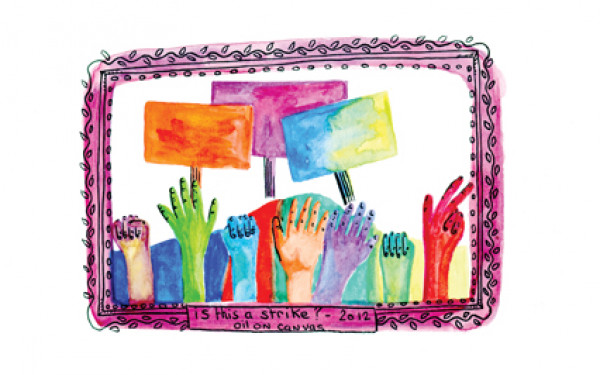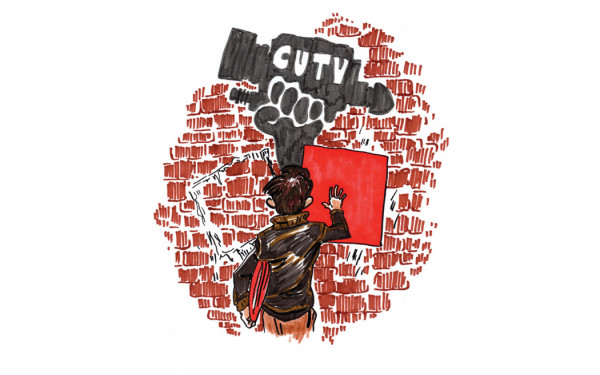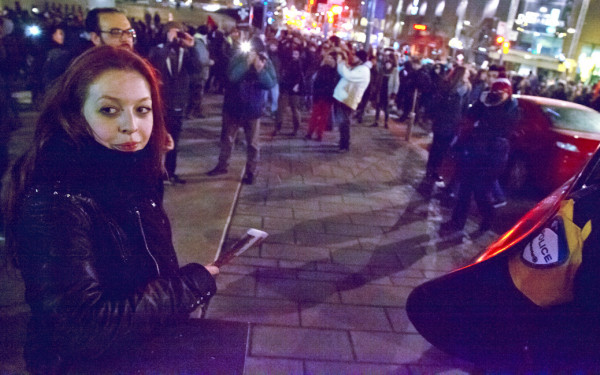The City Should Pay in Students’ Class Action Suit
Approval of Lawsuit a Step in the Right Direction
It began as many of the night-time student protests did in 2012.
A group in the hundreds gathered at Émilie-Gamelin Square as darkness fell, and then those in attendance began to march, loudly proclaiming their belief in the right to accessible education in Quebec.
And, keeping with the theme of the protests, shortly after beginning, riot police rounded up demonstrators en masse on St. Denis St., arresting a total of 508 people just after 1 a.m. on the night of May 23.
In response to the actions of police that night, a class action lawsuit was filed against the city last year in July by Montreal-based lawyer Marc Chétrit Rieger, who did so on behalf of Jean-Pierre Lord, a social work student at the Université du Québec à Montréal. Last Wednesday, it was announced that the case would proceed, with the lawsuit being formally filed sometime early next year.
Lord is asking for $2,500 in damages and interest. Because of the nature of the case, the 508 people who were arrested alongside Lord are also included in the proceedings and if the judge sides with those arrested, all 508 of them could receive their own $2,500 cheque.
It is possible for some individuals to opt-out of the case, but the shockingly high number of people cited in the case is part of what makes this entire situation so ridiculous; the more people who remain involved, the better.
The events of that night were not the first time that demonstrators had explicitly followed police instructions and avoided the areas they were supposed to (in this case, the Viger tunnel), only to be faced down by a line of riot police.
We’ve seen the same tactics being used since the Maple Spring ended as well. During the March 15 anti-police brutality protest this year, protesters were told they could march provided they moved in the direction of traffic; after walking roughly half a block in the direction of traffic, both the municipal and provincial police forces moved in to arrest protesters.
It was one of the most striking instances of both kettling tactics by the SPVM and of the force of municipal bylaw P-6. Protesters and journalists alike were rounded up and held on 17 city buses for hours, without access to washrooms, food or water.
In short, it was an abuse of police power and a situation handled in an entirely inappropriate manner. Given that it was far from the first time things had played out like this, with so many individuals being arrested for committing no real crime, the city should fork over the cash that is being demanded of them in this lawsuit.
Money is not the solution to life’s problems, and receiving $2,500 is not akin to the dissolution of an unconstitutional bylaw—but it is a start. If those who participate in the lawsuit are awarded the funds they deserve, the case could become a precedent for the lawsuits that will inevitably surface as time progresses.
With the Maple Spring commission beginning earlier this week, aiming to assess the impact the student movement had on the public, and as more instances of authority abuses at the hands of the police come to light, it’s likely that other lawsuits like Lord’s will be filed. And if so, this case will act as a precedent.
The City of Montreal ought to pay what is being asked of them; they ought to give back to those who had their rights infringed upon so grievously by those who were supposed to be protecting them.

_900_598_90.jpg)



_600_375_90_s_c1.JPG)
